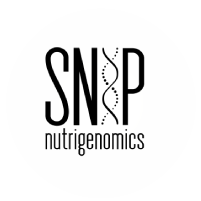Decoding Your DNA Just Got Easier with SNiP Nutrigenomics.
At SNiP Nutrigenomics, we’re all about making your health journey easy, effective, and personalized—because understanding your genes shouldn’t feel like decoding a secret language!
By harnessing the power of nutrigenomics and precision medicine, we help you optimize gene expression so you can feel and function at your best. But we know that genetics can sometimes seem overwhelming…
That’s why we’re introducing a simple, user-friendly tool—the Genome Glossary—to break down key genetic terms and empower you with knowledge. When you understand your DNA, you can make informed choices that enhance your health span, vitality, and overall well-being.
Let’s dive in and unlock the language of genetics together
Why Does Understanding Genomic Terms Matter?
Understanding these genetic terms empowers you to take charge of your health. For instance, if you know you have the AA genotype for PON1 rs662, you might:
- Boost your diet with antioxidant-rich foods like berries and leafy greens.
- Supplements like glutathione, CoQ10, or vitamin E are recommended to support detoxification; all are in your CODE Complex™.
- Minimize exposure to environmental toxins and oxidized fats.
By learning about your genetics, you can make informed, proactive decisions to enhance your well-being.
Introducing the Genome Glossary: Your Guide to Genetics
Genetics can feel overwhelming, but a fantastic resource to help you navigate this fascinating field is the Genome Glossary provided by the National Human Genome Research Institute (NHGRI). This user-friendly tool breaks down complex genetic terms into easy-to-understand language.
At SNiP Nutrigenomics, we support your journey toward better health through personalized nutrition and genetics. Tools like the Genome Glossary are invaluable for helping you understand the science behind your unique genetic makeup.
Why Use the Genome Glossary?
- Simplify Complex Science: Break down terms like “epigenetics” or “pharmacogenomics” into digestible explanations.
- Enhance Communication: Clear definitions help everyone stay on the same page, whether discussing genetics with your healthcare provider or sharing information with loved ones.
- Support Lifelong Learning: The glossary is updated as genetics evolves, ensuring you have access to the latest information.
Key Terms from the Genome Glossary
What is Nutrigenomics?
Nutrigenomics is the science of how your genes interact with food and nutrients, shaping everything from metabolism and detoxification to mood and longevity. Think of it as a personalized roadmap to better health—rather than following generic health advice, nutrigenomics helps you optimize your diet and lifestyle based on your unique genetic blueprint. Your DNA may influence how well you process certain vitamins, how efficiently you detoxify, or even how your body responds to carbohydrates and fats. But here’s the exciting part: your genes are not your destiny! With the right nutritional and lifestyle choices, you can turn on beneficial genes and silence less favorable ones, giving you more control over your health than ever before. At SNiP Nutrigenomics, we make it easy to apply this cutting-edge science to enhance your vitality, improve your resilience, and extend your health span.
What is DNA?
Imagine DNA as the blueprint of life—a special code that contains all the instructions your body needs to grow, develop, and function. This code is written in a molecule called Deoxyribonucleic Acid (DNA). Think of it like a twisted ladder, known as a double helix, with sides made of sugar and phosphate and rungs made of base pairs:
- Adenine (A) pairs with Thymine (T)
- Guanine (G) pairs with Cytosine (C)
These base pairs form sequences that make you uniquely you.
What is a Genome?
Your genome is your complete set of DNA—your personal instruction manual. It contains all your genes and the non-coding regions in between. Within your genome are millions of tiny differences called genetic variants, like single nucleotide polymorphisms (SNPs), that contribute to your individuality.
- Genes are segments of DNA that code for proteins, which perform most of the functions in your body.
- Variants are small changes in your DNA sequence that affect how genes work.
What is an Allele?
An allele is just a fancy word for a version of a gene. You inherit one allele from your mom and one from your dad for each gene. Together, these combinations influence your traits, health risks, and how your body functions.
For example, let’s look at the PON1 gene, which plays a key role in detoxifying harmful substances and protecting against oxidative stress. Variants of this gene, like rs662, can impact how efficiently it works:
- TT Allele: High efficiency in breaking down toxins—offering strong protection against oxidative stress.
- CC Allele: Lower efficiency, potentially making you more vulnerable to environmental toxins.
- TC Allele: A balance between efficiency and vulnerability, with moderate detox capacity.
What is a Genotype?
Your genotype is your unique combination of alleles for a specific gene. For PON1 rs662, your genotype could be:
- TT: Strong protection against oxidative stress and robust detox capacity.
- CC: Reduced protection, so extra antioxidant support may be beneficial.
- TC: Moderate detox capacity, providing balanced efficiency.
Understanding your genotype can guide you in making personalized nutrition and lifestyle choices to better support your health.
What do Homozygous and Heterozygous mean?
These terms describe whether the two alleles for a specific gene are the same or different:
- Homozygous: Two identical alleles (e.g., TT or CC).
- Heterozygous: Two different alleles (e.g., TC).
This distinction matters because it can affect how certain traits are expressed. For instance, homozygous TT for PON1 rs662 means you likely have a high detox capacity, while heterozygous TC suggests moderate efficiency.
What Are Wild Types, Mutations, and Variants?
In genetics, the term wild type refers to the most common version of a gene found in a population—it’s essentially the “standard” version that scientists use as a reference. Think of it as the default setting on your phone before you customize it.
The word mutation often sounds alarming, but in genetics, it simply refers to a change in the DNA sequence. Mutations can be inherited (passed down from parents) or acquired (due to environmental factors like toxins or radiation). Some mutations have no impact, while others can affect health, metabolism, or disease risk.
A variant, on the other hand, is a naturally occurring difference in a gene. Variants aren’t necessarily bad; they’re just alternative versions of a gene that may work slightly differently. Some variants might give you an advantage—like better endurance or faster detoxification—while others may require extra support through nutrition or lifestyle choices.
Now, when we talk about a vulnerability, we’re referring to a variant that might make certain functions in your body less efficient. For example, a genetic variant could slow down how well your body processes certain nutrients or responds to stress. But here’s the good news—understanding your unique genetic blueprint allows you to make targeted choices to optimize your health.
So, rather than thinking of genetic variants as “good” or “bad,” seeing them as valuable insights into how your body works best is more helpful. With the right knowledge and support, you can turn potential vulnerabilities into
What is Gene Expression?
Gene expression is like a dimmer switch for your genes—it controls how much a gene is “turned on” or “off.” Not all genes are active all the time. Some genes, like PON1, may become more active when exposed to toxins, helping your body respond to environmental challenges.
What’s the Difference Between Actionable vs. Non-Actionable Genes?
Not all genetic information is created equal—some genes provide immediate, actionable insights, while others offer interesting but less directly useful data. Actionable genes are those where specific diet, lifestyle, or supplement changes can meaningfully impact your health. For example, genes like MTHFR (folate metabolism), PON1 (detoxification), and COMT (neurotransmitter balance) can guide personalized nutrition and lifestyle adjustments to optimize function. Non-actionable genes, on the other hand, might indicate risk factors or ancestry information but don’t provide clear steps for improvement—like eye color genes or variants associated with historical evolutionary traits. At SNiP Nutrigenomics, we focus on the 103 most actionable genes, ensuring that the insights you receive are practical, science-backed, and designed to enhance your health span. Because knowing your genes is great—but knowing how to use them to your advantage is even better
What is Genetic Imputation?
Think of genetic imputation as filling in the missing pieces of a puzzle. When your DNA is tested, there might be gaps in the data. Imputation uses information from reference populations to predict these missing pieces, making your genetic picture more complete and useful.
What is a Polygenic Risk Score?
A polygenic risk score (PRS) is like a health forecast based on your genetics. It calculates your likelihood of developing certain traits or conditions by examining the combined effects of many genetic variants. For example, while PON1 plays a role in detoxification, other genes like GSTP1 and NQO1 also contribute. PRS considers all of these to give you a more comprehensive view of your health risks.
What is a SNP (rsID)?
A SNP, or single nucleotide polymorphism, is a tiny variation at a single spot in your DNA. Each SNP has a rsID, which is like its own unique name. For example, rs662 is the identifier for a specific SNP in the PON1 gene that affects detox capacity. Knowing your SNPs can help tailor health strategies to your genetic makeup.
Learn Even More
- Visit the Website Genome Glossary
- Explore Terms: Search for specific words or browse topics to expand your understanding.
- Share with Others: Encourage friends and family to explore genetics alongside you.
Empower Yourself with Knowledge
The world of genetics holds incredible potential for improving health and wellness. By understanding the language of genetics, you unlock the door to personalized strategies that can make a real difference in your life.
So why wait? Dive into the Genome Glossary today and take the first step on your journey to genetic empowerment.
We hope this simplified guide helps you feel more comfortable with genetic concepts. Remember, at SNiP Nutrigenomics, we’re here to support you every step of the way!
Empower yourself with knowledge, one term at a time.
Take Action: Know Your Genes and Unlock Your Health Potential
Discover your genetic blueprint and take control of your health with SNiP Nutrigenomics. By testing with us, you can unlock insights into 103 high-impact, actionable genes, including those crucial for optimizing overall well-being. Already have your DNA data from companies such as 23andme or Ancestry? Enter your results to receive your customized nutrigenomics formulation CODE Complex™, designed to optimize your detoxification and metabolic pathways and empower your journey to better health.
Take your first step to harness the promise and power of genetically informed nutrition today!


